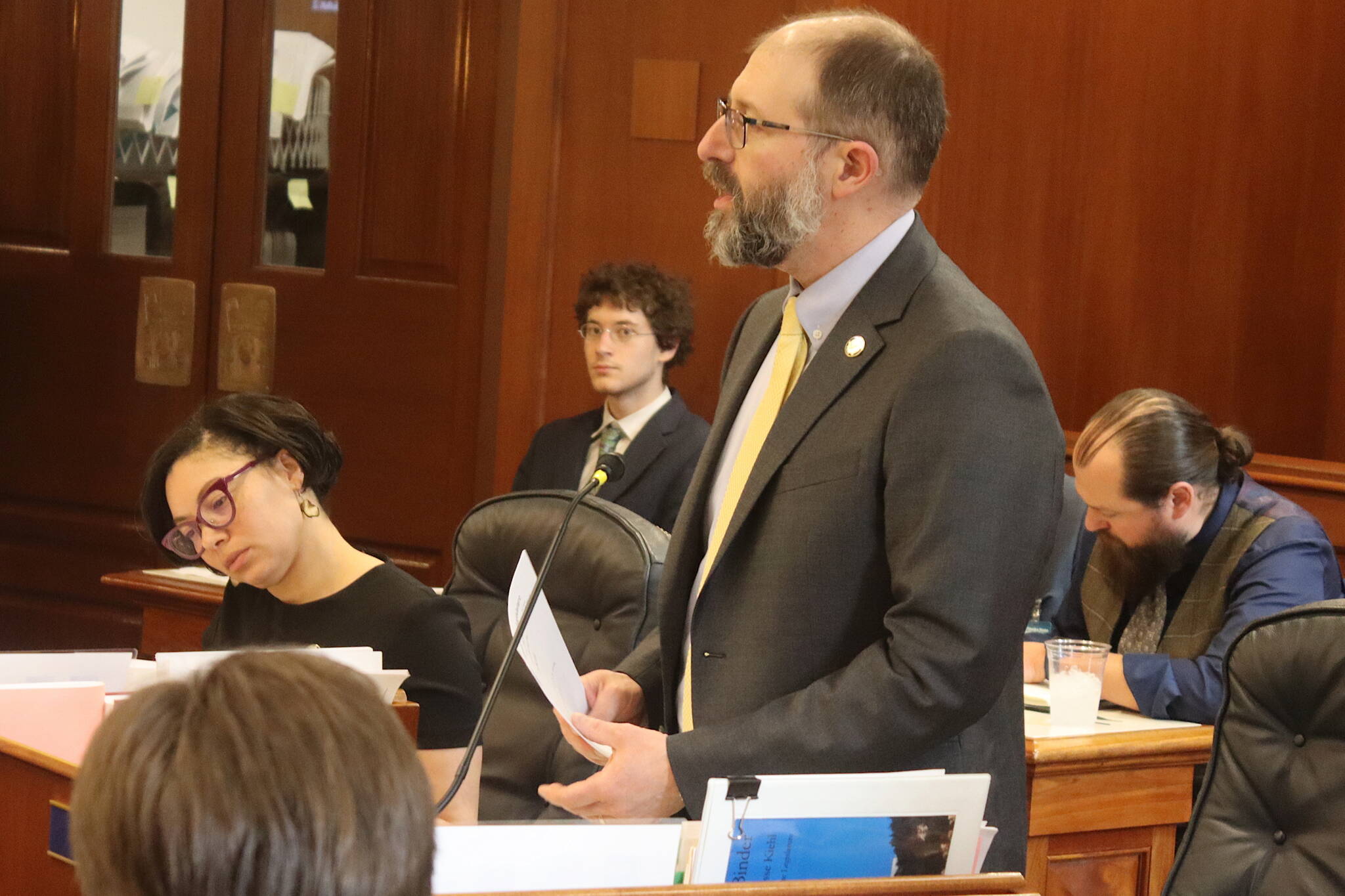This story has been corrected to note the PFAS ban bill authorizes the state to compensate communities for disposing such chemicals, but the state itself does not purchase or dispose of the substances.
Legislation by members of Juneau’s delegation imposing new standards for municipal property assessors, banning “forever chemicals” in firefighting foams and requiring safety ladders on designated public floating docks got final passage in some form — either as their own bills or as provisions in other bills — during the Alaska Legislature’s final day of the session on Wednesday.
Three items introduced by Sen. Jesse Kiehl, a Democrat, made it across the finish line, including Senate Bill 67 that bans per- and polyfluoroalkyl substances for most firefighting purposes. He has sought such a ban for years and successfully included its provisions in a bill that passed last year that was vetoed by Gov. Mike Dunleavy, who cited concerns about a lack of alternatives to the foams.
Kiehl, during a break in Wednesday night’s floor session, said he has talked with Dunleavy about the bill and “I believe the governor is open to it.”
Exemptions to the PFAS ban apply to a fire “that originates in relation to oil or gas production, transmission, transportation, or refining in the state,” according to the text of the bill. The bill also authorizes the state to reimburse communities for disposing small quantities of PFAS foam.
The provisions of another bill by Kiehl establishing statewide standards for municipal property assessments were attached to a bill by Sen. Jesse Bjorkman, a Nikiski Republican, that prohibits property transfer taxes being imposed by municipalities or the state. Kiehl said when he introduced his bill it was motivated in part by a Haines controversy last year when hundreds of residents called for the borough assessor’s removal following a dramatic rise in many residents’ property assessments.
Key provisions of Kiehl’s legislation establish minimum qualification standards for assessors, require tax appeals be heard by default by an appointed board of equalization instead of local elected officials and prevent a municipality from raising an assessed value during an appeal. Juneau municipal officials have stated its assessors already meet the requirements sought by Kiehl.
Only a portion of a bill by Kiehl increasing state disaster assistance eligibility survived — by having some of its provisions attached to a House bill sponsored by Rep. Andi Story, a Juneau Democrat.
Story’s legislation, House Bill 345, requires safety ladders on municipal floating docks that receive a harbor facility grant. In her sponsor statement, Story said the requirement will “reduce the risk of death by drowning for people using these busy docks.”
The disaster assistance bill by Kiehl — which Story also introduced as a companion bill in the House — set maximum aid for residents to $50,000 rather than $21,000 and increased eligibility for people living in multi-residential buildings such as condominiums. Only the latter eligibility provision made it into HB 345 before it passed the Legislature on Wednesday, which Story said was because there wasn’t enough support to include the increase in aid due to the potential cost.
The limits on state assistance became a prominent local issue following record flooding of the Mendenhall River last August that damaged or destroyed dozens of homes.
While Dunleavy quickly declared the incident a state disaster, requests for federal disaster aid for residents were rejected, leaving many people facing six- and seven-figure repair bills with minimal help. The flood also caused serious damage to condominiums, but residents were unable to receive state aid to help fund common-interest elements of the buildings such as foundations, exterior walls and roofs.
Juneau’s other delegation member, Rep. Sara Hannan, also saw the provisions of one of her bills stuffed into a different piece of legislation. The original bill extending authorization for the Board of Massage Therapists until 2030 instead of expiring this year was included in a bill that originally extended the Alaska Commission on Aging, but ended up being one of this session’s “omnibus” bills that had numerous related items added.
• Contact Mark Sabbatini at mark.sabbatini@juneauempire.com or (907) 957-2306.

